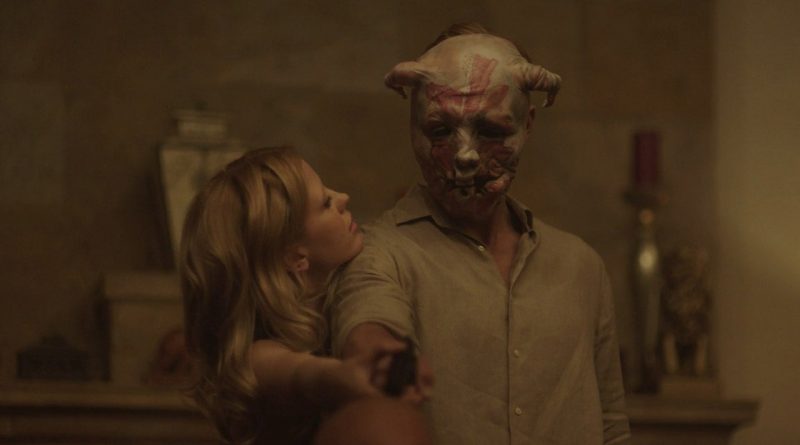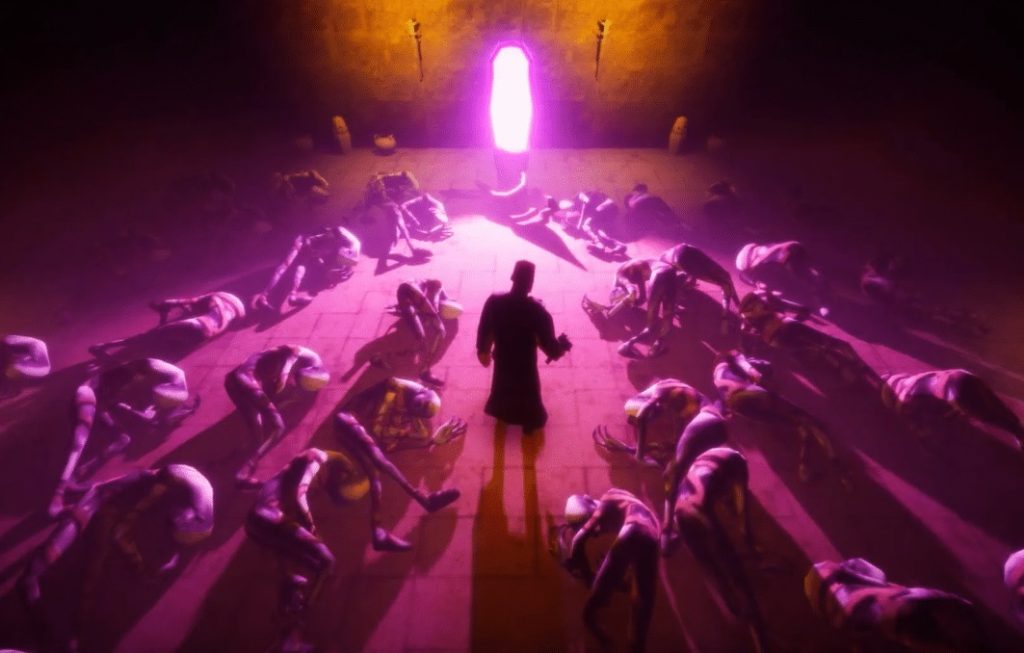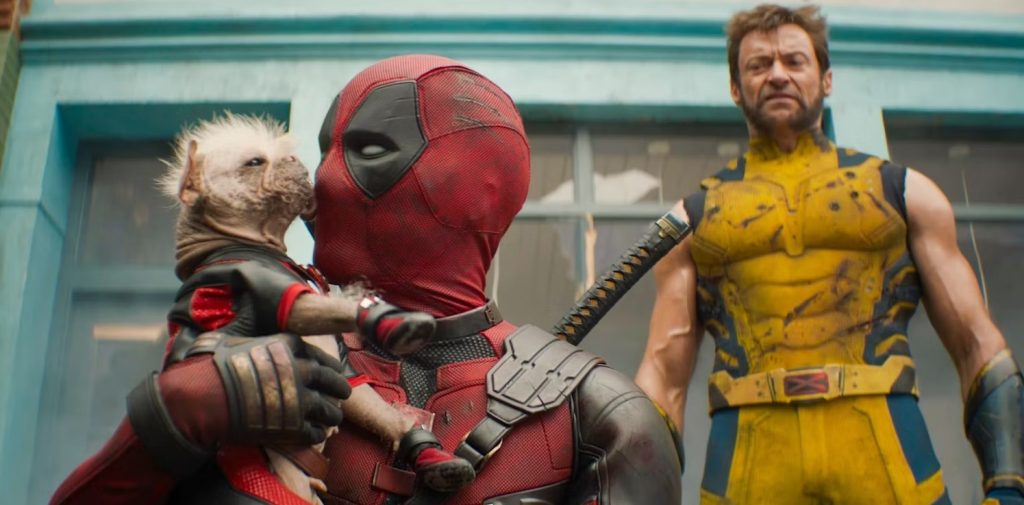Following the critical success of his first two features Anti-Viral and Possessor, Brandon Cronenberg enters a different, if no less subversive, league with Infinity Pool. What’s become clear across his films so far is that where his dad David is fascinated by the degradation and corruption of the human body, Brandon’s concerns are much more cerebral as he explores the morality of the human condition and the lengths (and depths) the individual is prepared to go in pursuit of base pleasure and pure survival.
Infinity Pool evokes both John Michael McDonagh’s The Forgiven (2021) and Christian Tafdrup’s Speak No Evil (2022). Although, for all Infinity Pool’s gore, violence, and unadulterated psychedelic depravity, it still can’t quite touch the sickening, stomach-turning horror and sheer unpleasantness of the latter. It’s a tale of two American holidaymakers in Li Tolga, a fictional hotspot, who ill-advisedly befriend two other tourists. A tragic accident finds James (Alexander Skarsgård) avoiding execution only by agreeing to a remarkable local custom whereby a cloned copy – a ‘double’ – is created and killed to atone for the crimes of the original. However, it’s a slippery slope, and despite the disgust and revulsion expressed by his partner Em (Cleopatra Coleman), James is drawn not only to the seductive Gabi Bauer (Mia Goth) but also into a weird, debauched world of sex, drugs, and recreational slaughter.
It’s a stylish, striking film; Skarsgård, in particular, is hypnotic as the often-stupefied James and Goth sizzles as the persuasive and irresistible Gabi. It descends into a miasmic whirlpool of sex, violence, and depravity, but it’s hard to avoid the conclusion that Infinity Pool hasn’t really got much to say beyond the fact that people do some fucked-up things sometimes. Who knew?

INFINITY POOL is in cinemas on March 24th








